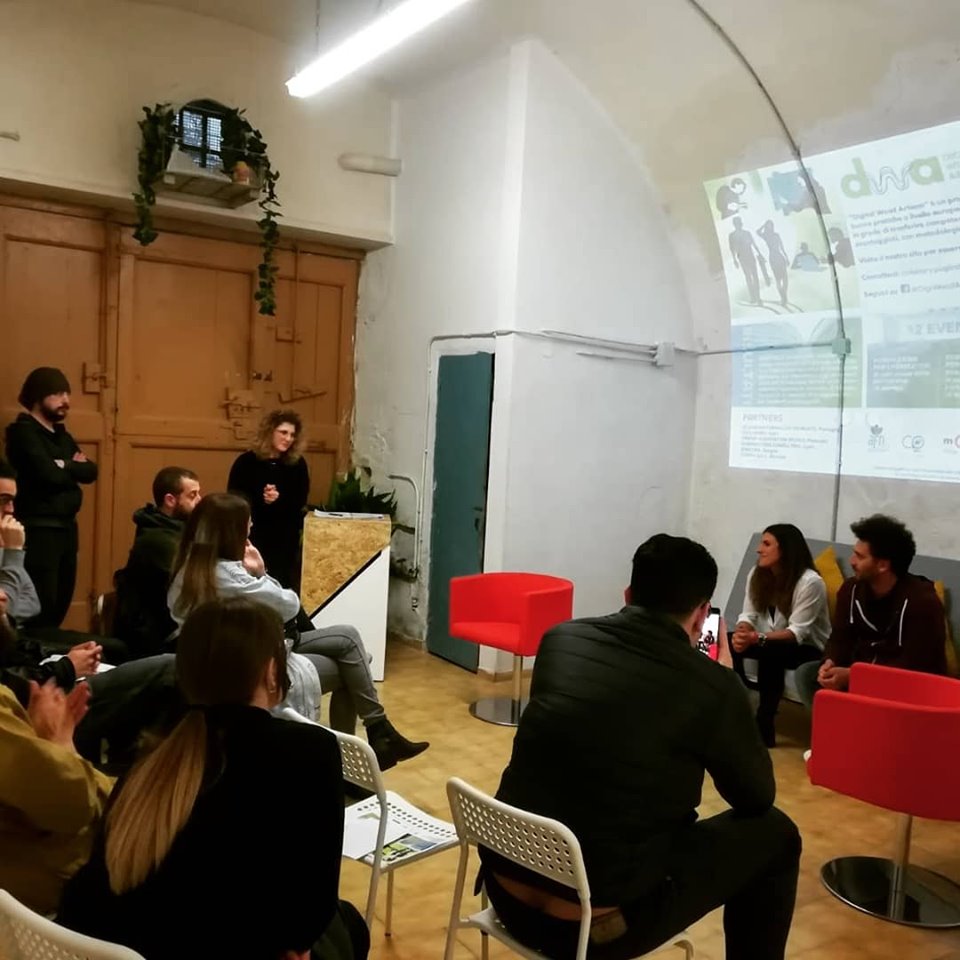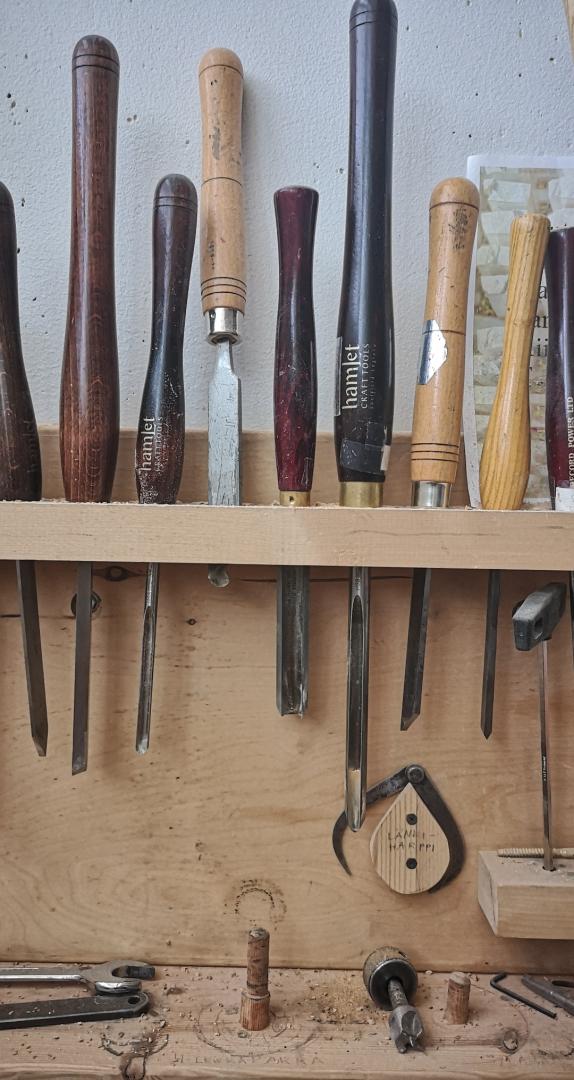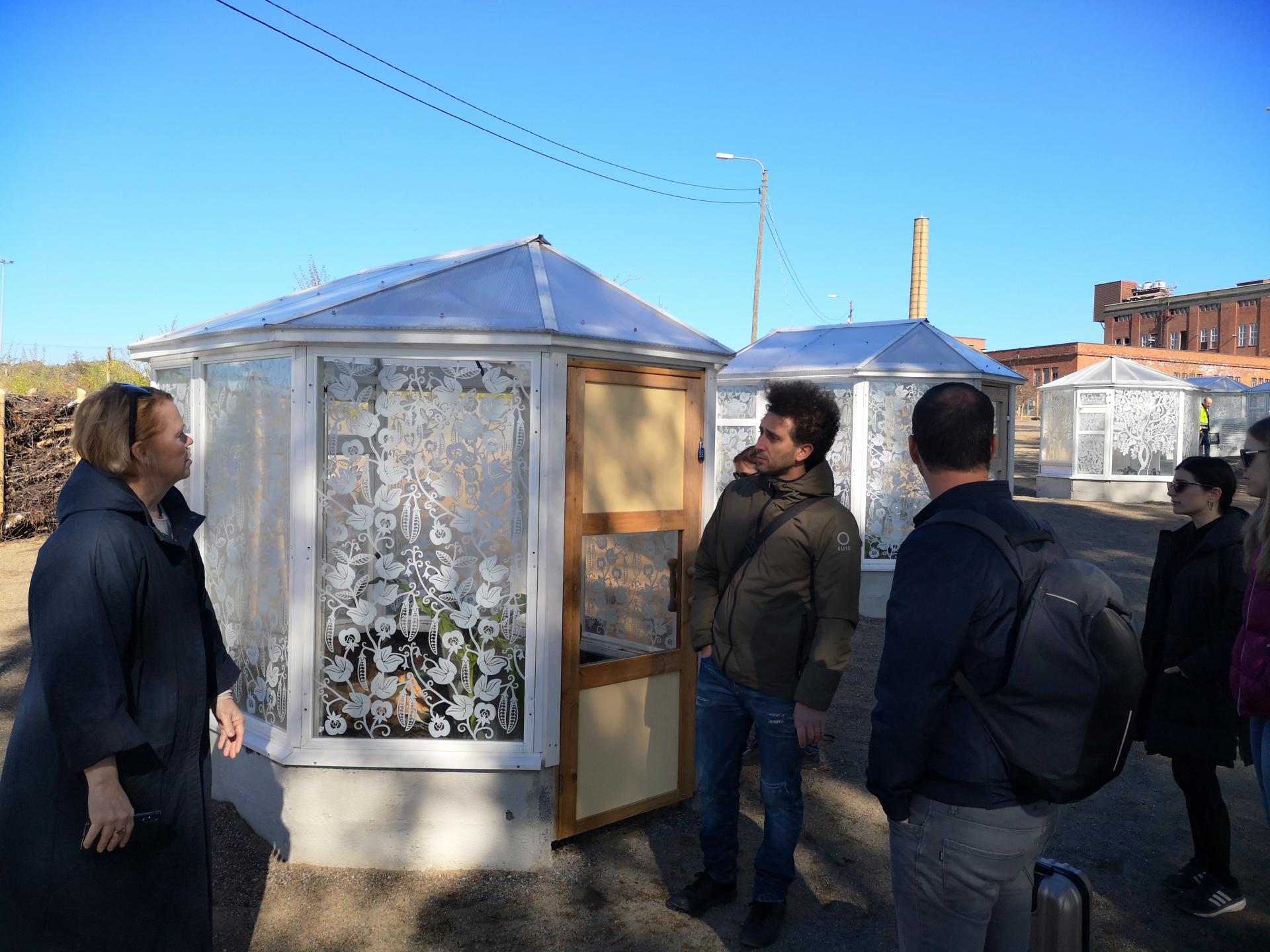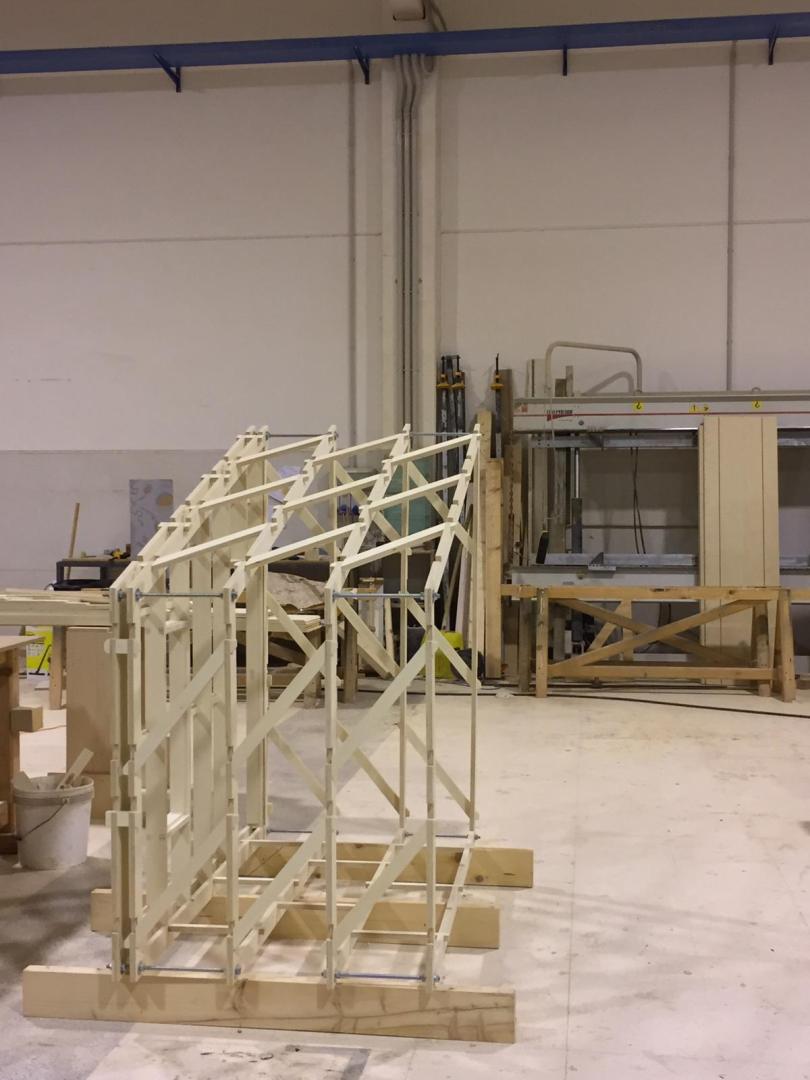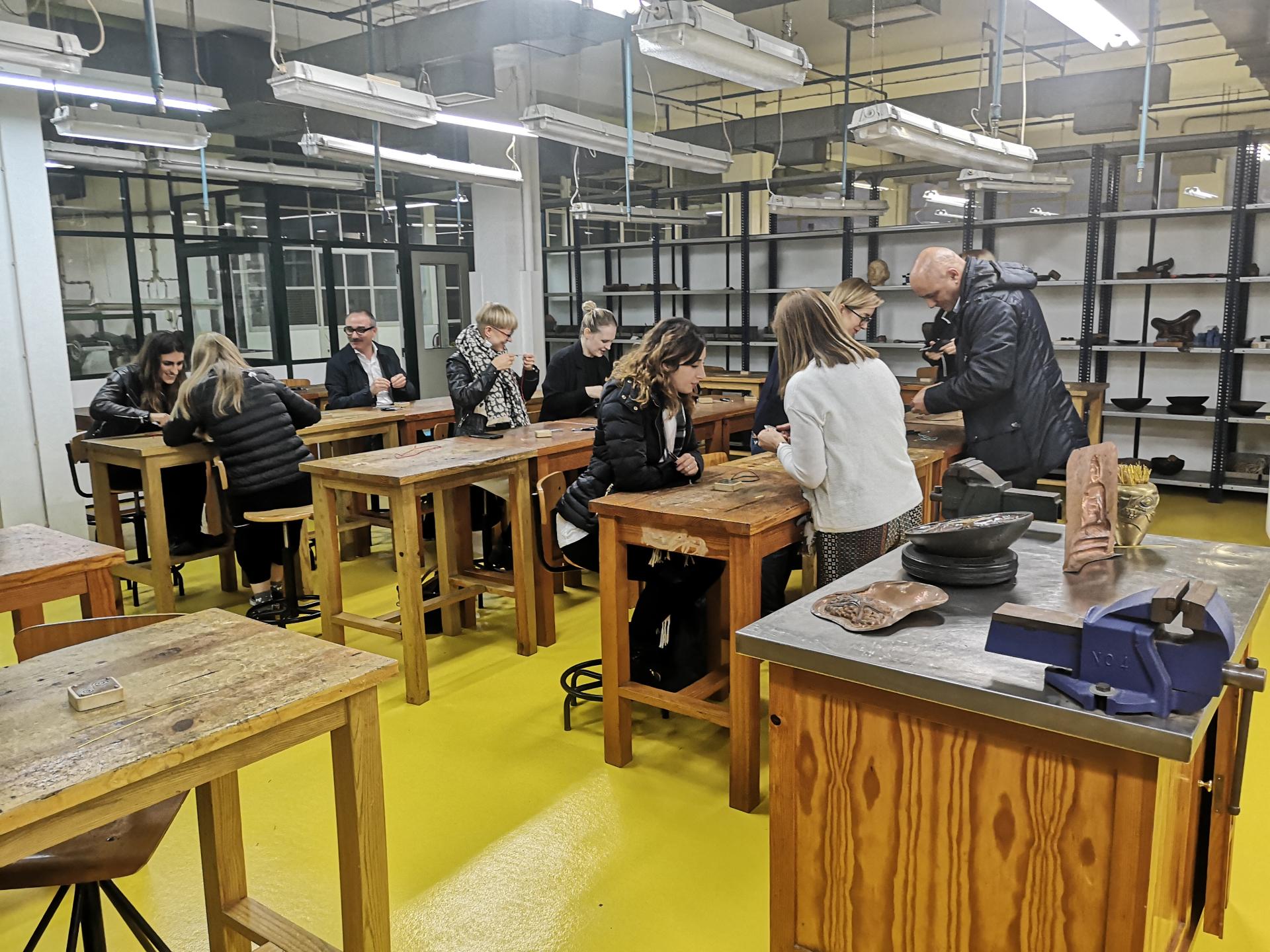DWA
Basic information
Project Title
Full project title
Category
Project Description
Digital Wood Artisan has disseminated good practices at the European level through the training of trainers that can provide innovative skills, about the wood sector, to disadvantaged learners with innovative, effective, and consolidated methodologies.
All participants have been part of a know-how transfer, the result of research work on ancient woodworking techniques, rethink in a digital key, and best practices of inclusion in Europe.
Project Region
EU Programme or fund
Which funds
Other Funds
ERASMUS+ programme
project number: 2018-1-IT01-KA202-006744
Description of the project
Summary
The Erasmus + "DIGITAL WOOD ARTISAN" project was created to spread good practices at European level, in the field of wood and social inclusion, with a very ambitious goal: to inspire the creation of a new professional figure, that of the "Makers - digital wood craftsman ”with skills both in the world of new technologies and in the artisan tradition, to preserve and transform the intangible cultural heritage, linked to the ancient arts, with a view to inclusion.
The partnership has decided to conduct meticulous research in the areas of competence, as a theoretical basis for the creation of that effective and repeatable training model at European level.
This is why our project has created a Manual, containing a comparative study in Europe on old and new woodworking techniques, and on the techniques and methods of inclusion of disadvantaged people, in order to support the work of educators, trainers and all those who need to update their professional profile through the knowledge of new teaching tools and methods based on new technologies, respecting ancient traditions.
Key objectives for sustainability
CONTEXT
Unemployment is a worrying phenomenon that affects the whole of Europe. We all know, in fact, the negative consequences that this entails in the economic, social, and general welfare of the people.
Even more serious is the situation for disadvantaged people such as NEETs, immigrants, people with mental and physical disabilities, people whit socio-economic problems.
Even if at current levels of unemployment is high, (situation worsened by the COVID-19 pandemic), jobs in the industry 4.0 increase annually, but the number of skilled workers in the field can not cover this requirement.
DWA addressed the needs reported by the target group of the project that was consulted in preparing the application and throughout the project. About 60% of the project’s target group were from backgrounds with fewer opportunities and many lacked key and specific skills.
Led by CO-LABORY (IT), the partners, representatives of NGOs and small and medium-sized enterprise in ES, FI, SI, CY, PT, they introduced the concept of the The "Makers - artisan of digital wood", to their countries like a new job figure which manages to include disadvantaged people, through craftsmanship in the digital age.
OBJECTIVES
The project has supported the involvement of disadvantaged learners; has encouraged labor market participation, has provided key and specific skills acquisition; has provided beneficiaries with the necessary tools so that they can anticipate the entry into the labor market and fill the gap between supply and demand for jobs in the digital craftsmanship sector; has promoted among the disadvantaged people innovative work practices, learning, and discussion; has improved the level of competencies and key skills of trainers; has created synergy between the participating organizations, and their stakeholders.
Key objectives for aesthetics and quality
DWA's true goal is to help create new professionals in the area who are able to draw with equal competence both in the world of new technologies and in the artisan tradition of the various European territories.
In fact, if new technologies, such as CNC machines, are already widely spread with knowledge and skills that can be acquired by different users, the situation is different for traditional woodworking techniques, very different from each other and extremely linked to their territories of origin.
In the countries of the Mediterranean area as well as the Scandinavian ones in the north we find very long traditions linked to wood products, with very different technical and morphological characteristics.
This factor of heterogeneity of the entire European area in our opinion is a great strength not yet fully expressed, as well as demonstrating the beauty of the intangible cultural heritage present in our continent.
The researches in the field of "woodworking techniques" have provided remarkable results by gathering information on traditional techniques that are very widespread at European level such as inlay that produces very different products depending on the territory in which it is used, but also techniques more related to their territories of origin such as the typical "illuminations" of southern Italy or the identity "fallas" for the city of Valencia. However, contemporary techniques and machinery were also studied such as CNCs or revolutionary processing techniques for the world of design developed in the early 1900s in Finland.
Key objectives for inclusion
An essential factor in supporting students is understanding their background, their daily problems, challenges, and aspirations. Each partner already had good knowledge and experience in relation to this target. As a partnership, we explored the problems of the participants with whom we came into contact, understanding the difficulties of many of them forced to live in difficult family contexts, others with skills deficits general and specific, some with little money and little motivation; many of them from a migrant background, who find themselves living in a foreign country with few language skills or in remote rural areas; other participants with learning disabilities.
Each partner found common characteristics that allowed us to customize the activities intended for them:
• lack of confidence and self-esteem
• lack of financial independence and fear of losing social benefits
• cope with isolation and long travel distances by living in rural areas
• addressing language-based challenges, cultural differences, and discrimination for migrant groups
• school interruption or dropout due to disability
• lack of job opportunities for those with low skills/qualifications
• (a minority) may be more susceptible to crime and extremism
All participants who took part in the project received an informal assessment to determine their starting skills and offer them the support they needed. Each partner was in contact with specialized education and inclusion organizations for more support.
Results in relation to category
DWA had a great impact on everyone involved. In particular:
Disadvantaged people who have been involved in project activities have improved their specific skills in the wood sector and have had the opportunity to rediscover the value and importance of ancient traditions, adapting them to the current context. We refer in particular to all those subjects in socio-economic difficulties, with a migratory background and disabled people, who have had the opportunity to become familiar with some technological tools for free and in an informal context.
The trainers have improved their professional skills; they have gained a broader understanding of the needs of disadvantaged people and how to address them; have had access to new informal and participatory learning methods; they have acquired a better ability to motivate students; have benefited from this great opportunity to work at a European level, broadening horizons and with new perspectives.
The Partnership benefited from qualified personnel, able to reuse and adapt the project results in other contexts; they have acquired new ways of communicating with learners and tools for involvement; have gained a better understanding of students' motivations and goals; they have acquired and borrowed new working practices.
As for the stakeholders, we have also had a positive impact on them. Some schools that have been involved in some project activities, have known the possibilities offered by the EU, and have expressed their intention of wanting to approach this world. Some organizations working mainly in the wood sector have explicitly requested the results of our project in order to be able to consult them and integrate them into their working practices.
We found a strong interest in the Slovenian organization, which manages to involve disabled people in its carpentry.
How Citizens benefit
For the realization of the project, the partnership worked hard in order to involve the greatest number of participants in all the project activities, also in light of the new situation that strongly conditioned the realization of some activities in presence.
Despite the premises, DWA saw the involvement of:
- educators/trainers belonging to the staff of the participating organizations, who were involved in all the project phases. In the first, the survey of needs in relation to the project theme; in the second, research and study supported by trainers, educators, and makers from external organizations; in the development of the project manual, also taking care of the translation into the respective national languages; in the creation of training material
used during training sessions; in international formation, and in the moderation of all national formative events. They also conducted interviews with local realities related to the project mission.
- external trainers were involved in the realization of local workshops starting from the results of the project, some of them took part in one of the international training moments, others conducted local training events aimed at other trainers and students.
- students who participated in local dissemination events, various workshops, and local training events, in some countries in presence, in others online.
- companies, NGOs, VET organizations, and local schools engaged in various capacities in complementary activities to the project. The aforementioned organizations were involved in the information events and some of them participated in the training events.
Innovative character
Our project idea was born from the will of the partnership to create an effective and repeatable model at European level of to disseminate woodworking techniques in a modern perspective, with the help of new ICT technologies.
From the comparison with the partners, it has emerged that there are many different approaches to disadvantaged people and the teaching techniques used by trainers.
The "DWA" project is inspired by an Erasmus + KA2 "Math-GAMES" project which was achieved good results. This project provides examples of good practices and suggestions for the creation of training courses for the use of traditional games both with people with normal skills, and those with lesser skills, aimed at improving calculation skills.
Just as "Math-GAMES" aims to promote social integration and offer personalized learning opportunities to learners, even "DWA" aims to do this and try to do so using a multiplier effect.
We intervene internationally on the staff of the participating organizations that trigger a multiplier effect on their territories by training trainers.
The trainers are able to transmit and disseminate the skills acquired to the learners of their territories.
All the material produced is available online to increase the impact and encourage rural and disadvantaged people, to improve their skills.


